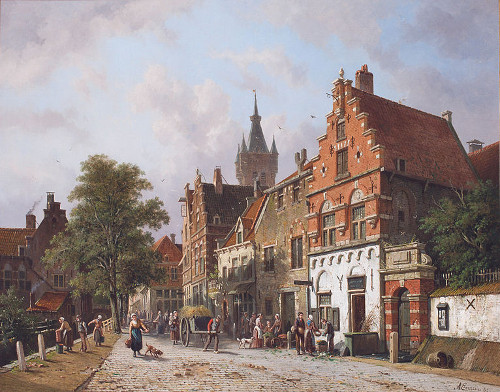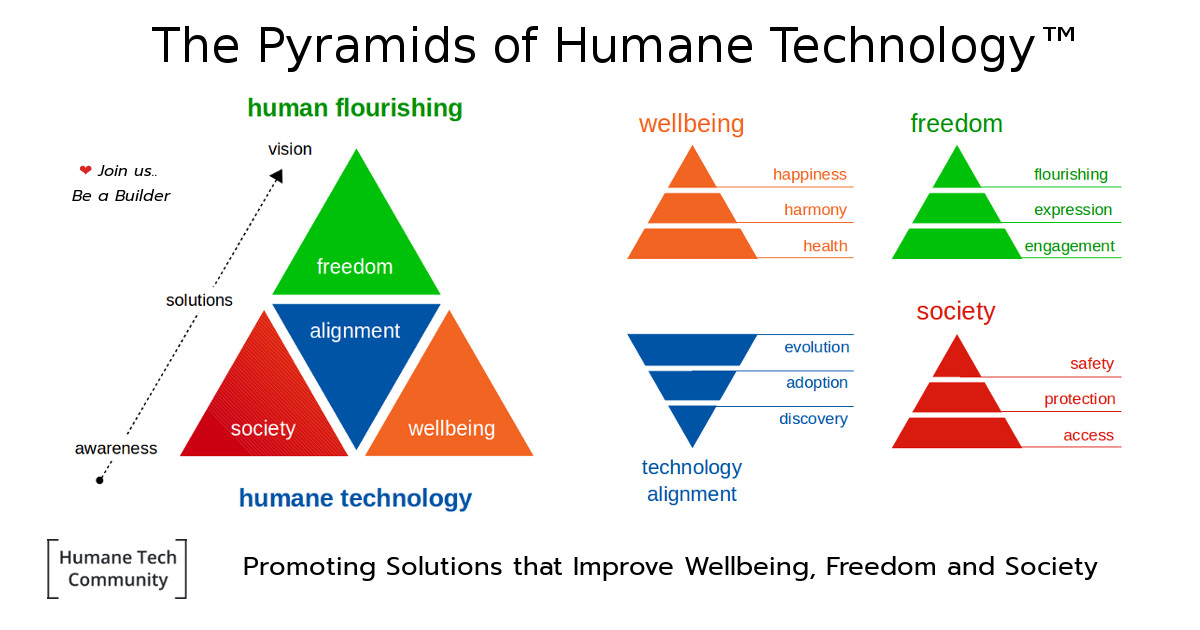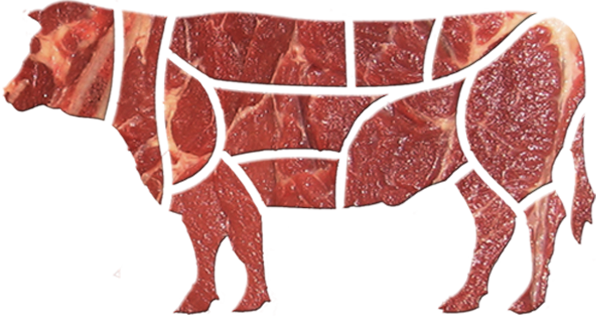Small is Huge!
I am just a small guy, I realize it and have come to appreciate that. Yes, I can even say that I crave to become smaller and smaller, until I am tiny. Not small in posture or narrowness of the mind, by the way. Not that small. No, I’d love to become small in my ambition. Lucky for me, I have come quite far in achieving that goal in a relatively short time. It took me less than two years to reduce my ambition in life to an almost insignificant objective: To have mankind flourish and humanity thrive. And of course fix some minor hurdles along the way, like climate change and the environmental pollution that comes from success. I can say, it is a huge relief to just be modest and pay attention to other more meaningful things than being successful. In other words, I have come to see that Small is Huge!
Do you find that strange? As with everything I am not the only one striving to be small. An increasing number of people are, and they try to convince others to shrink with them. And things. Like Aral Balkan who has a recipe to make Small Tech, where now it is big. And a cool and growing community is removing the magic from large unicorn beasts into normal zebras, which is an example of restraining imagination, making it smaller. More modest. Don’t need to be a wizard to be able to do that. Just about everyone - all normal people - can.
 I am just one of those numerous small people. Maybe I am like you, and our small ambition is the same. I live in Delft in The Netherlands, a pittoresque small town, and have been working in IT circles during my humble career. Worked very hard to come where I am, as do so many others, but in love with tech, so work was my hobby. Even calling myself an ‘IT Passionado’ on my CV, can you imagine? But this passion has subsided somewhat as I was growing in my career. The reason for this is that there is something very strange and uncanny in personal growth and becoming successful career-wise, something off. In our modern world this means you are moving ever faster and have less time to do valuable things. You could call it a rat-race, but it is the entire society that is speeding up. And all of this is being driven exponentially by technology. We are addicted to the stuff. It is has become a virtual opioid crisis, and we are almost on overdose now.
I am just one of those numerous small people. Maybe I am like you, and our small ambition is the same. I live in Delft in The Netherlands, a pittoresque small town, and have been working in IT circles during my humble career. Worked very hard to come where I am, as do so many others, but in love with tech, so work was my hobby. Even calling myself an ‘IT Passionado’ on my CV, can you imagine? But this passion has subsided somewhat as I was growing in my career. The reason for this is that there is something very strange and uncanny in personal growth and becoming successful career-wise, something off. In our modern world this means you are moving ever faster and have less time to do valuable things. You could call it a rat-race, but it is the entire society that is speeding up. And all of this is being driven exponentially by technology. We are addicted to the stuff. It is has become a virtual opioid crisis, and we are almost on overdose now.
Striving To Be Smaller
My frustration of this led me to seek a career change. One where I can contribute in small ways to society, give something back, help others and become happier by doing that. First I looked into traditional startup entrepreneurship, but failed in that. I started ‘pivoting’ as it is called in popular language, and came up with a grand vision of smallness for a startup idea. A concept that is now validated and waiting. But it is on hold, dormant, because my growing worries with technology and where it is leading us led me to become ensnared in yet another cool adventure: The Quest for Humane Technology.
This occurred in February 2018 as The Center for Humane Technology - acronym CHT - opened its doors. Founded by Tristan Harris - former ethicist at Google - and a continuation of the Time Well Spent movement, but with a different, more urgent objective. The non-profit CHT is fighting to fix what we are now calling the Harms of Technology, i.e. the collection of all problems related to rapid introductions of (digital) technology to mankind who is not yet prepared for it. I will not name these harms in this article, just have look at the news. We all know about them, at least to some extent.

Tristan Harris ~ Time Well Spent
I immediately enrolled in the CHT discussion forum, and later volunteered as moderator, then became admin. At the same time Tristan Harris and his crew encountered enormous traction and were overwhelmed by global press, government officials and even world leaders asking them directly for advice. They couldn’t manage the forum members, let alone unroll their initial plans and a roadmap, to the frustration of many. So in the course of 2018 with engagement levels declining I decided to take the initiative to reposition the discussion forum as a grassroots, independently operating community from the CHT. The Humane Tech Community, or HTC, was born. Whereas the Center is operating strategically, top-down, we adopted a bottom-up approach working entirely crowdsourced and in the public domain. Together we strive to bridge the growing gap between humans and tech, close the divide, and make technology serve humans again. Tackle the Harms of Technology from both directions.

Right now our community is preparing an overhaul and reorganization that allows us to scale and become a very exciting place to participate in. During the last year we have learned many lessons, evaluated the problem space and discovered a world of solutions that is still mostly hidden to the wider world. Most importantly we have engaged with each other, making many human connections, meeting face to face, forging friendships and sharing innovative insights and inspiration. I met ever more people that valued smallness in all its forms.
So from this stems my conviction to be small too, become smaller still, and do small, underappreciated things like fixing humanity and the world at large, etcetera. I just don’t feel much anymore for modern society’s engrained definitions of growth and success which are dominating us. We have truly lost our ways here. Our ways of interaction and doing business and crow about ‘success-related’ business practices, where if you do not comply and reach the top you are one of the “losers”, those left behind. One of the small people. No! Small is huge. It is proper to be small.
There are a number of things we leave out of the picture when perceiving winners and losers based on a warped idea of success. First the ‘definition of success’ is entirely subjective and personal and in the way we formulate it, in my opinion we align it too much with how it is defined by (capitalist? western?) economic systems that are out of control.
Growth and Success
Second there is the ‘concept of freedom’ that we are losing track of, and which should allow any individual to be ‘unsuccessful’ in the eyes of others. We should not strive for common definitions of success, but instead pursue personal goals. Small and realistic ones, like having a better world. If that warrants the label of ‘loser’ by anyone else and in a negative sense, then this may indicate a shortcoming or lack of understanding in the other (unless of course ones small goals are unethical or even immoral, in which case fair judgment is warranted).
Finally there is the ‘concept of value’ and ‘learning how to create value’ in order to achieve personal success. And strongly related to that is the ‘concept of failure’. All are in the eye of the beholder, entirely subjective as well. What one perceives as worthless gives another great joy. To stick with tech, the many persons “making millions of almost useless and unwanted pieces of tech” as some describe it - coming from a ‘unicorn’ perspective - are mostly stemming from the worthwhile efforts by millions of people that learn how to create value, and hence give meaning to their life in many small ways. And who add value by doing so.
Value By Failure
And yes, many of these are failures, while many others are not. Failures, either just in the eyes of others, or maybe failures by your own perception. Failures can be devastating, or they can just constitute valuable lessons-learned. In other words failures can be (and often are) of great value too. Personally I think we need to fail first to truly successful. And we need to continue to experience ‘failures’ both big and small on our path to success. “Fail fast, and fail often” is a credo in IT and startup culture, and it has merit in a much broader perspective.
 After all, if we look at all those tech billionaires there are these days, on their rise and rise of (materialistic and shallow definitions of) success, they get into places where proper, normal human beings should not want to be: having their moral and ethical values entirely wrong or warped and lacking in empathy for people in general and care for the world at large. They become vain, selfish individuals. Maybe they can live with themselves like that - there are studies that indicate many of them are sociopaths or even psychopaths - but maybe they also have those restless nights where they are thinking over their lives with thoughts of “What is my true impact on the world?” and “Am I truly successful? Am I worth the respect of others?”, etcetera. We know these thoughts, they are normal.
After all, if we look at all those tech billionaires there are these days, on their rise and rise of (materialistic and shallow definitions of) success, they get into places where proper, normal human beings should not want to be: having their moral and ethical values entirely wrong or warped and lacking in empathy for people in general and care for the world at large. They become vain, selfish individuals. Maybe they can live with themselves like that - there are studies that indicate many of them are sociopaths or even psychopaths - but maybe they also have those restless nights where they are thinking over their lives with thoughts of “What is my true impact on the world?” and “Am I truly successful? Am I worth the respect of others?”, etcetera. We know these thoughts, they are normal.
Feral Unicorns
So now back to Small Tech, as another small ambition of mine is to be proud of it again, and get my true passion back. Is Small Tech a novel idea? No, not by any means. But it is an underused and undervalued business approach. And related to a neglected and underappreciated philosophy of life: the philosophy where true human values prevail, like modesty and empathy and pursuing happiness instead of wealth. And if we do not act, and act soon with concerted effort, then our ‘modern-capitalism-driven’ trends will continue to diminish the value of this philosophy, and may even destroy great human achievements of the past, like democracy.
BTW Note my careful choice of words in saying ‘modern capitalism’. I don’t want to be dragged into populistic discussion by people saying I am a ‘communist’ by my criticising capitalism (or even to be called a ‘socialist’ in the Orwellian meaning of the word that populistic propaganda tries to bestow on this term). Let’s just say there are many flavours of capitalism, and some of them may even work in the long run. Forbes recently defined our current form as ‘fake capitalism’.
So what Aral Balkan is trying to do in his bullet point list of what constitutes Small Tech, is to define one approach to a new perspective on doing business in tech. He is suggesting making fundamental choices that can be considered best-practices to consider, and that - when followed en masse - lead to a better world. In other words, he offers us handholds. But in a small article one can of course only touch the tip of the iceberg, and furthermore not all of his bullet point suggestions need to be necessarily adopted. There are many flavours in this as well. For example, the approach taken by the aforementioned Zebras Unite and many other similar initiatives. And the principles they define can be combined at will. You are free to pick and choose what works best for you. Freedom, remember.
Freedom To Be Small
And this is where Humane Tech comes into the picture and the Humane Tech Community initiative - that I have become part of - really kicks off. We should see Humane Technology as a new area of expertise, a complete subject area that is a field of study in its own right. As I see it, in the future, you should be able to go to university to do a CS/BS combinational study of ‘Humane Technology’ and get your PhD in that. Eventually there will be many Humane Technology experts, consultants, professors and other authorities in the field.
The role of the Humane Tech Community and the Center for Humane Technology in this, is to lay the foundational framework for this new knowledge area. We do this by collecting all the existing solutions, insights, experiences, philosophies and lessons-learned that already exist, and create a pervasive network of like-minded initiatives and partners to continuously improve this foundation, adding new solutions and making the whole ever more comprehensive, applicable and therefore actionable. It is very much a holistic approach, requiring input from people in all walks of life and with different knowledge.
Building Grand Pyramids
We all know that there are many highly valuable unique selling points (USP’s) to be had when walking the humane technology path. This means that as we go along on our quest, we will increasingly show the attractiveness of adopting new practices to the wider world. And our community growth will come natural, as people get really excited when they see the possibilities. Our community principle of participation being ‘fun and rewarding’ - helped by some entertaining storytelling of pyramid-building - will certainly stimulate that as well.
Having all the frameworks and methodologies in places in a similar vein to what Aral Balkan and many others are promoting, means that as the adoption of Humane Technology increases - and business models change as a result of that - we will also evolve towards different, vastly improved and sustainable economic models that are applied to our broader society. From one improvement comes the next, and so on.

I realise this is all very high level still, and many of the concepts we talk about in our community are really abstract and enormously complex, but this is actually a point where humanity can truly thrive. After all, the multitudes of mankind can achieve unbelievable things if we all set our minds and efforts to a common cause, as history has proven. We did go to the moon, and are now aspiring to go to Mars very soon (which in my opinion is setting the wrong priorities, but that is a whole different story altogether).
Given our Mission and the Vision of “Ubiquitous Humane Technology that Stimulates People to Flourish and Humanity to Thrive”, our position statement, and the storytelling analogy of pyramid-building we have adopted for our community, it all boils down to this:
We are building grand pyramids again, and we are building them now, in the present: We are building The Pyramids of Humane Technology and I am very, very proud of anyone of you great Humane Tech Activists who joined or will join the cause. Honest people who have decided to become a modest Pyramid Builder, no matter how small or large your contributions are! And this pride extends equally to anyone around the world who builds with us, yet in a different team than our Humane Tech Community. You all rock!
Now come on. Let’s roll up our sleeves and start hewing those blocks of stone, people.
Be a Builder ![]() Help Improve Wellbeing, Freedom and Society!
Help Improve Wellbeing, Freedom and Society!
Onwards to Human Flourishing 
I have dedicated a lot of my smalltalk here to tech, because I am nerdy and selfish, and want my passion back. But things apply more broadly without fail. All in all tech is an important factor that can bring us much of the good stuff we need for a healthy future. So in conclusion I’d say: Think small, be small, readjust definitions of growth and success accordingly, and then any small yet growing problem - like e.g. climate change - can be tackled before they become too large. Going for small, is huge.
#smallishuge
(Many thanks to all who inspired me, especially Aral Balkan for his Small Tech vision. Images credited to Wikimedia, Adrianus Eversen, Maerten de Vos, and Katherine Joy.)




